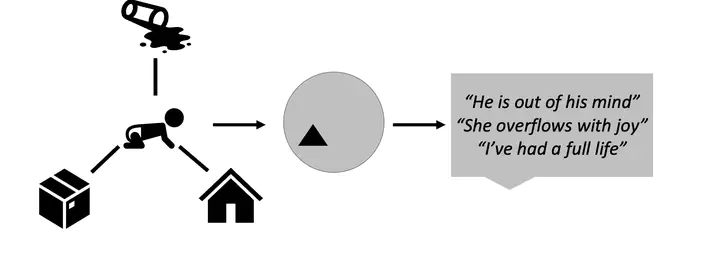Systematic Analysis of Image Schemas in Natural Language through Explainable Multilingual Neural Language Processing
 Image Schemas: From physical experiences during infancy to building blocks that structure abstract thought
Image Schemas: From physical experiences during infancy to building blocks that structure abstract thought
Abstract
In embodied cognition, physical experiences are believed to shape abstract cognition, such as natural language and reasoning. Image schemas were introduced as spatio-temporal cognitive building blocks that capture these recurring sensorimotor experiences. The few existing approaches for automatic detection of image schemas in natural language rely on specific assumptions about word classes as indicators of spatio-temporal events. Furthermore, the lack of sufficiently large, annotated datasets makes evaluation and supervised learning difficult. We propose to build on the recent success of large multilingual pretrained language models and a small dataset of examples from image schema literature to train a supervised classifier that classifies natural language expressions of varying lengths into image schemas. Despite most of the training data being in English with few examples for German, the model performs best in German. Additionally, we analyse the model’s zero-shot performance in Russian, French, and Mandarin. To further investigate the model’s behaviour, we utilize local linear approximations for prediction probabilities that indicate which words in a sentence the model relies on for its final classification decision. Code and dataset are publicly available.